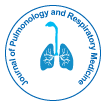当社グループは 3,000 以上の世界的なカンファレンスシリーズ 米国、ヨーロッパ、世界中で毎年イベントが開催されます。 1,000 のより科学的な学会からの支援を受けたアジア および 700 以上の オープン アクセスを発行ジャーナルには 50,000 人以上の著名人が掲載されており、科学者が編集委員として名高い
。オープンアクセスジャーナルはより多くの読者と引用を獲得
700 ジャーナル と 15,000,000 人の読者 各ジャーナルは 25,000 人以上の読者を獲得
抽象的な
Portuguese Family Drug Education's Respiratory Drug Class: A Delphi Research
Abdullah Al-Shamrani
Background: Respiratory conditions (RD) constitute a significant part of the workload of family croakers. There's no agreement on what family croakers should know in this area but established styles for achieving agreement may help to overcome this.
Objects: The purpose of the study was to gain a public agreement on the needed knowledge and chops in respiratory drug for family drug trainees after vocational training.
Methods: A Delphi study was conducted via e-mail with a different panel of experts. We developed a Learning Curriculum Framework (LCF) with 399 particulars acclimated from the Royal Australasian College of Physicians — Respiratory Medicine Advanced Training Curriculum. The LCF was submitted to the experts in two rounds for agreement. Consensus was considered for particulars that had an agreement of 80 in the groups above 4 on a scale of significance that ranged from 1(not important) to 5(veritably important).
Results: Consensus was attained for 159 particulars (38.8). These included structure and function of the respiratory tract(0.6), presenting problems(21.4), opinion(7.5), interventions and forestalment(11.3), COPDemphysema( 12.6), tumours(3.1), infections(10.7), tuberculosis(5.7), HIV(1.3), thromboembolic complaint(2.5), pleural- pulmonary complaint(3.1), gestation(0.6) and sleep diseases(3.8). Particulars on iatrogenic conditions and respiratory exploration didn't reach agreement.
Conclusions: Consensus on the respiratory drug class may contribute to farther development of the vocational training class in Portugal. This approach may help preceptors in other countries in Europe to develop classes for respiratory drug and other areas of general practice.

 English
English  Spanish
Spanish  Chinese
Chinese  Russian
Russian  German
German  French
French  Portuguese
Portuguese  Hindi
Hindi